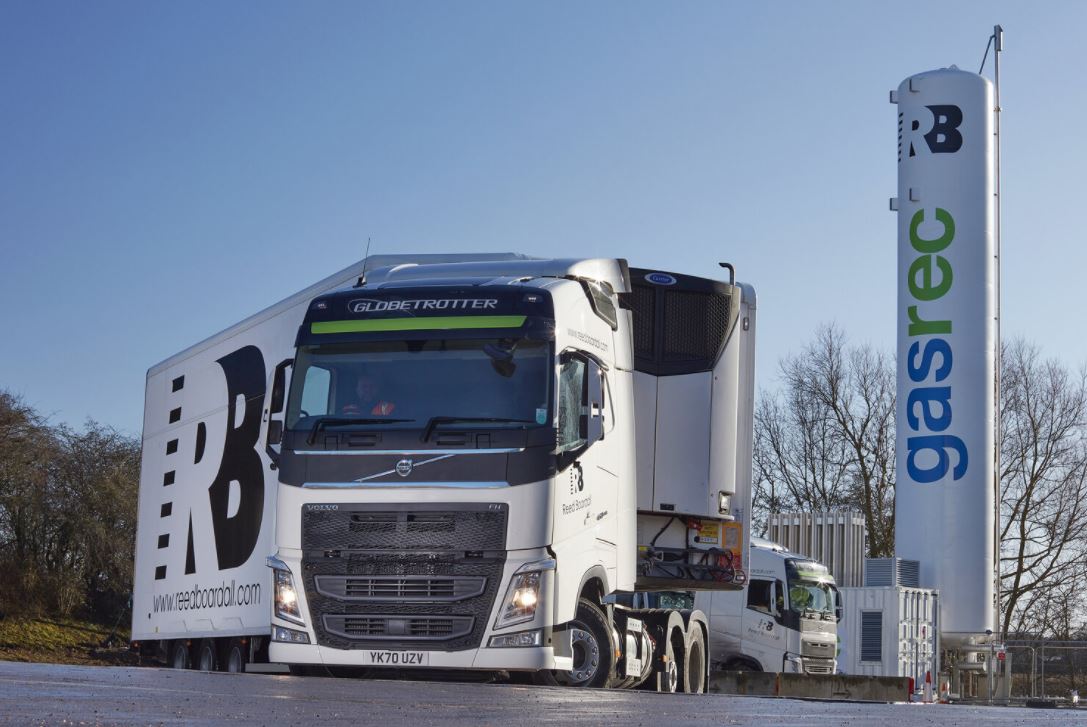Frozen food distribution business Reed Boardall has teamed up with UK fuel supplier Gasrec to launch its first bio-LNG truck refueling station.
Gasrec will own and operate the new station designed by Dutch small-scale LNG tech firm Liqal.
In addition, the station is located at the Reed’s Boroughbridge headquarters to fuel an initial fleet of 30 Volvo FH LNG 6×2 tractor units.
The opening of the site is a “major step” in Reed Boardall’s strategy to transition its 220-strong fleet away from diesel, according to a Gasrec statement.
Graeme Richardson, managing director, Reed Boardall Transport, said the government has set very stringent targets to reduce carbon emissions by 2030 and the firm will play its part and meet those goals.
The firm started using Volvo LNG trucks in March 2020 as it looks to slash emissions.
“Opening this site reaffirms our commitment to moving the fleet towards a cleaner, more environmentally-friendly fuel,” he said.
New station in Scotland
Bio-LNG-powered trucks can return CO2 savings as high as 95 percent, plus deliver a 99 percent reduction in particulate matter and 90 percent in NO2 emissions compared to equivalent Euro VI diesel trucks, according to Gasrec.
HGVs running on gas are also around 50 percent quieter than their diesel equivalents, the firm said.
Furthermore, Reed Boardall’s LNG fleet is predominantly working on fixed routes, delivering frozen foods to regional distribution centres.
The FH LNGs offer a range of 470-480 miles per tank, “comfortably enough” for return journeys around north and central England without needing to stop and refuel, Gasrec said.
Moreover, the firms plan to install a new station in Scotland later in the year to support a planned order for a further 40 new Volvo FH LNG tractor units.
“We’re working closely with the team at Gasrec and that collaborative approach will help us to greatly expand our LNG fleet over the next couple of years as the infrastructure allows. The trucks are working extremely well for us and we anticipate that by this summer we will have roughly a third of our fleet running on gas,” adds Richardson.

